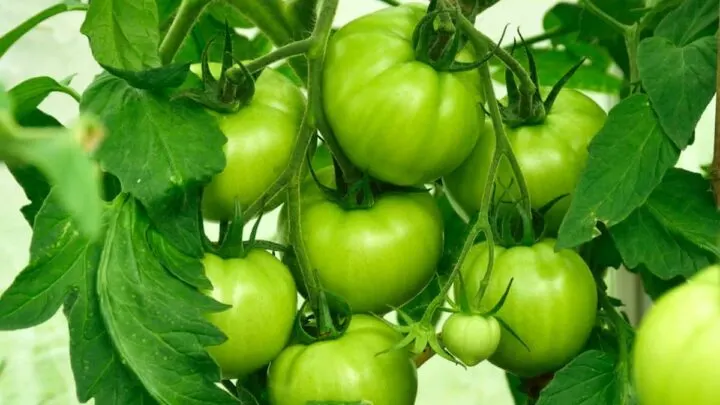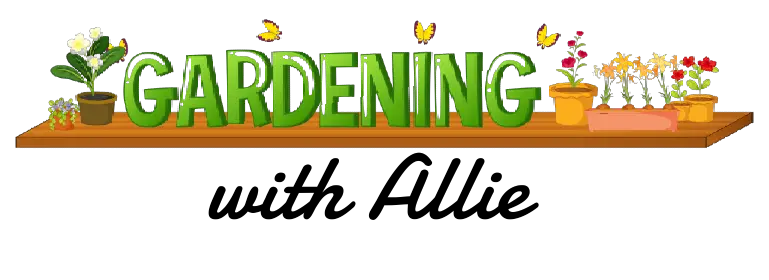Have you ever walked by your garden and noticed a lovely smell? There’s a big possibility that none of your plants are even bearing fruit yet, but you still smell something good. Maybe that smell even takes you back to a good summer memory. Interestingly enough, it’s not just fresh fruits, vegetables, or herbs that give off a pleasant scent; plant foliage can too. Tomato leaves are notorious for this. Now you must be wondering, why do tomato leaves smell so good?
Tomato leaves smell good due to a defensive process that they go through in order to fight off pests and insects. Towards the end of the tomato leaves, there are trichomes. They look like tiny hair and hold oils just like human hair does. The oil that collects within the trichomes possesses a pleasant smell.
When an insect or a pest interferes with the tomato plants, the trichomes break up and release the oils. Insects and pests can’t stand the smell, and they begin to back off, and the plant is then protected.
There are many more interesting facts about tomato leaves in the content below. Keep reading to learn all about their unique characteristics.

What Do Tomato Leaves Smell like?
Many people describe the smell of tomato leaves as a sweet odor mixed with fresh-cut grass. Oddly enough, it has even been referred to as a sunscreen-like scent. The smell is a unique sense in that it can bring people back to a specific time of year or a memory. The smell of tomato leaves has reminded people of late spring, summer, and sunny memories. It is enjoyed by many.
Are Tomato Leaves Edible?
Many claims have been made that tomato leaves are harmful for human consumption, but they have proven to be myths. Tomato leaves are edible. Many plant leaves are tossed out and forgotten about, but tomato leaves are good to use in place of or alongside the more popular herbs.
With a blender or food processor, you can dry out tomato leaves and grind them down into a fine powder. It can then be placed in a seasoning bottle and sprinkled onto food dishes. You can also finely chop tomato leaves and fry them in a pan with butter to brown them slightly. Both methods pair very well with pasta, pizza, and other heavier dishes that may require a unique and lighter flavor.
Different Ways To Use Tomato Leaves
- Create a fragrance or skin rub – Because tomato leaves have such a good natural scent to them, you could try your hand at creating a simple fragrance with them. Crush them up, and blend them into a paste and you could even make a skin rub out of it as well.
- Create an infused oil- Talented chefs recommend this method of using tomato leaves. Fill a glass jar with cooking oil of your choice, such as olive oil. Place the tomato leaves inside the jar and allow their flavor to be absorbed by the oil for at least a day. You can drizzle this mixture into a pan for frying meat or produce. It will add a unique flavor to your meals.
- Chop your tomato leaves up very finely and add them to a balsamic vinaigrette mixture. You can then drizzle it onto a salad, sandwich, or even something interesting like an avocado toast.
- Create a homemade pesto sauce to add to pizza or pasta. Combine ⅓ cup of tomato leaves with 2 cups of fresh basil, ½ a cup of finely grated parmesan cheese, garlic, salt, olive oil, and ¼ cup of toasted pine nuts. Feel free to mix up measurements and choose your own amount of seasonings to make it taste the way you want. You can also change the consistency by using different amounts of oil.
- If you are feeling adventurous, add a cup of chopped tomato leaves to your next batch of red sauce. Letting it simmer in a slow cooker or pot for at least a few hours will allow the flavors to truly work into the sauce. Many describe it as a unique flavor that gives complexity to your tomato sauce that is hard to match.

Are Tomato Leaves Harmful To Dogs?
Tomato leaves are harmful to dogs. This is something you want to keep in mind. The smell of tomato leaves is actually intriguing to most household pets, so keeping them far away from them is important.
Tomato plants, when consumed by dogs, can cause tomatine poisoning. Smaller breeds of dogs are at an even higher risk. Larger dogs can afford to eat small portions of tomato leaves, but a smaller dog will not be able to handle the same amount with a smaller body.
Securing your tomato plants and making sure they are out of reach from your animals can prevent them from some unpleasant symptoms. You can grow your tomatoes in raised beds or containers placed high enough off the ground to keep them away from your pets. You can also buy netting at your local home and garden store that can be used to prevent access to your plants.
Signs Of Tomatine Poisoning
- Abdominal pain and or gastrointestinal issues
- Seizures
- Excessive tiredness or lethargy
- Muscle weakness
- Loss of appetite
Can Tomato Leaves Be Used Medicinally?
Tomato leaves contain high amounts of lycopene chemicals, which have claimed to be a medicinal solution to many common health issues and diseases. Lycopene has been known to play a possible role in curing cancer. It has also been known to help solve issues related to asthma and heart disease. It’s hard to find any hard evidence that these claims are true, but, interestingly, tomato leaves have even been thought to have a positive role medicinally.
Final Thoughts
In conclusion, tomato leaves have a beautiful fragrance that many around the world love. It is described as a sunscreen and fresh-cut grass mixture. They smell because of a defensive wall that they naturally put up to protect themselves from pests and insects.
The smell is unpleasant to critters but enjoyable to humans. Although most fruit and vegetable leaves are discarded and ignored, tomato leaves can easily be used in food dishes to add a unique flavor. There are several methods listed above. Not only do they smell good, but they taste lovely as well. Next time you grow tomatoes, take advantage of their beautiful leaves.

Hi there, my name is Allie and welcome to my blog; GareningWithAllie!
Much of what you see written here is just our personal experiences with gardening. Along with the content I write here, there is also a unique collection of gardening topics covered by some of our close friends. I hope you find everything you read here to be helpful, informative, and something that can make your gardening journey the most lovely experience ever! With that said, Happy Gardening!
